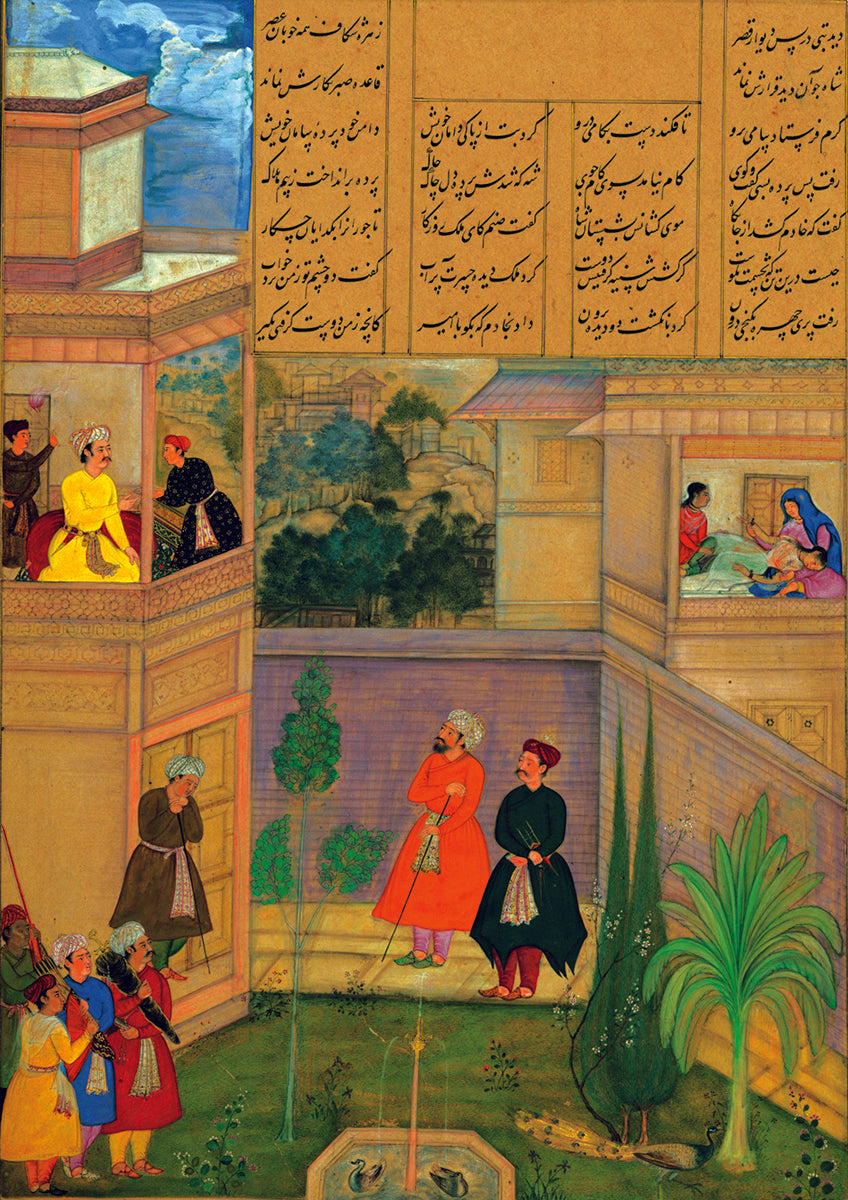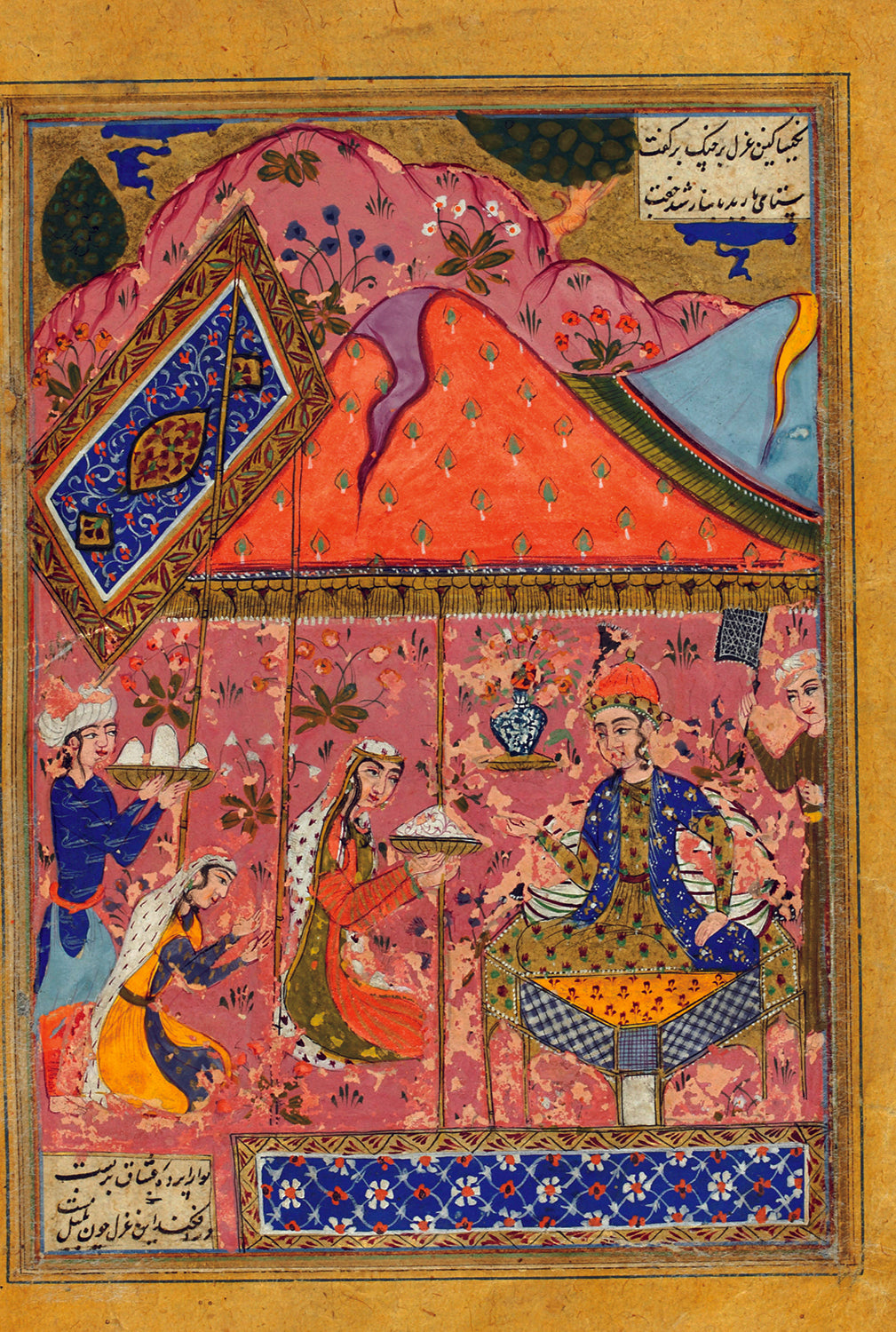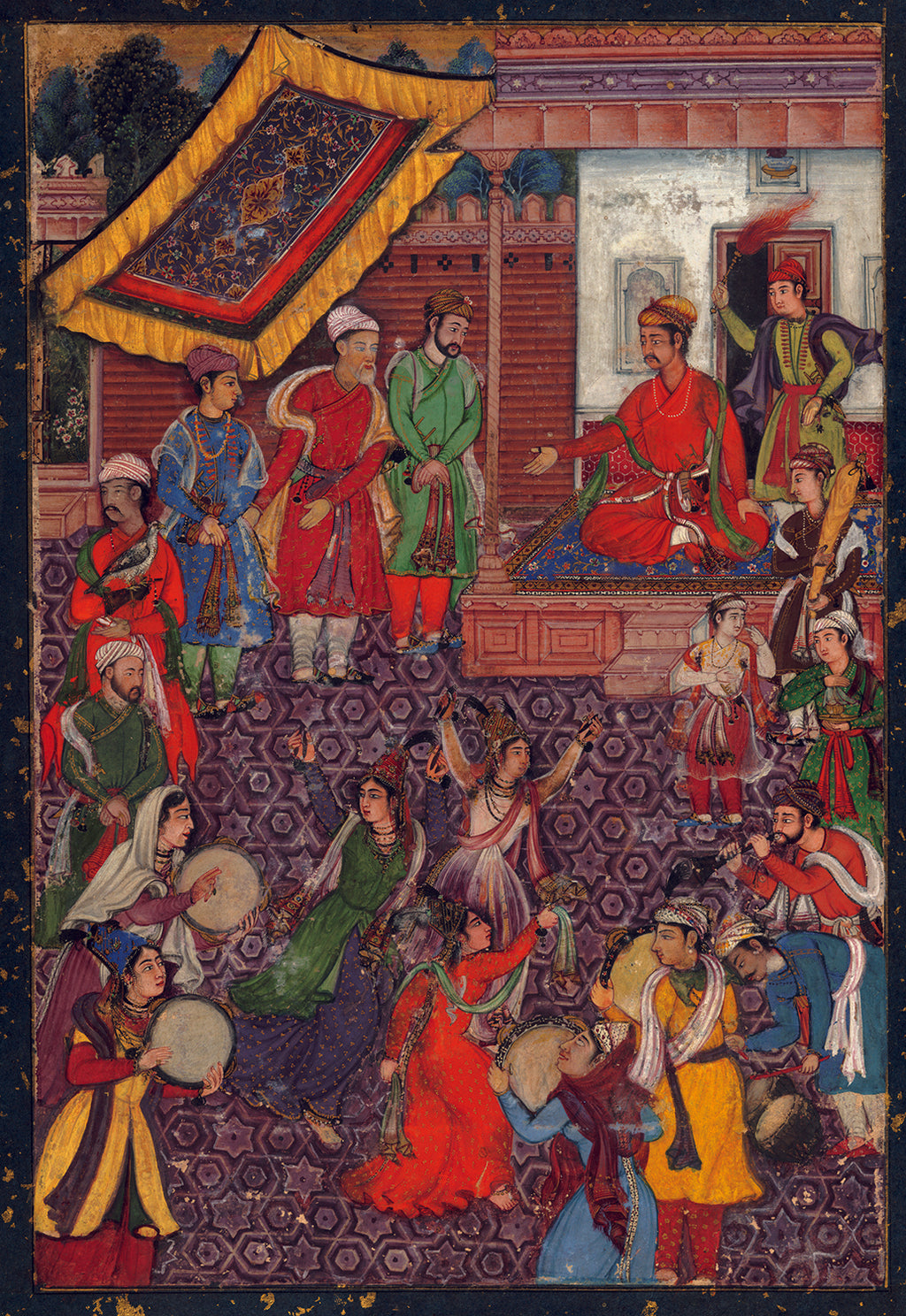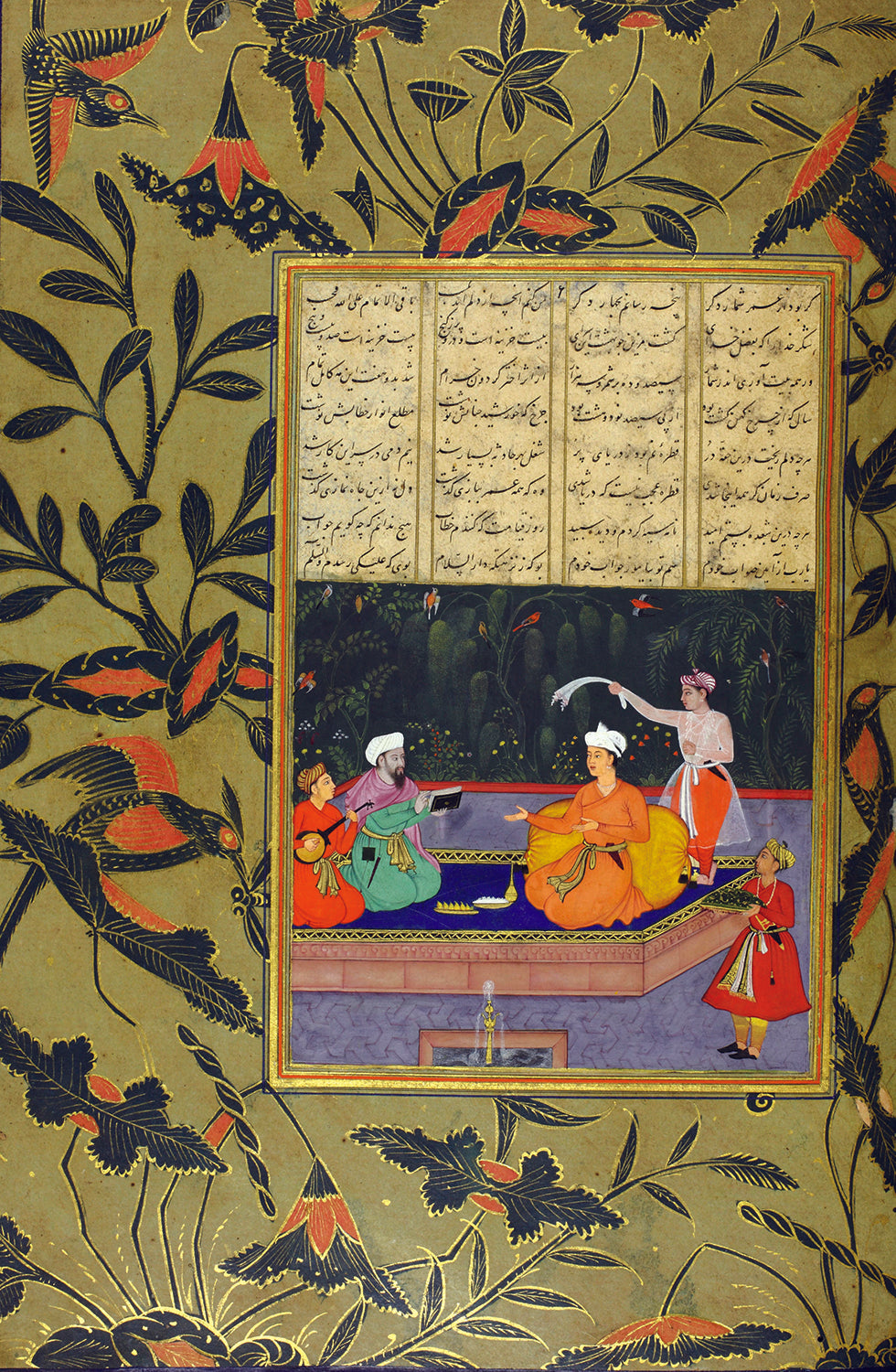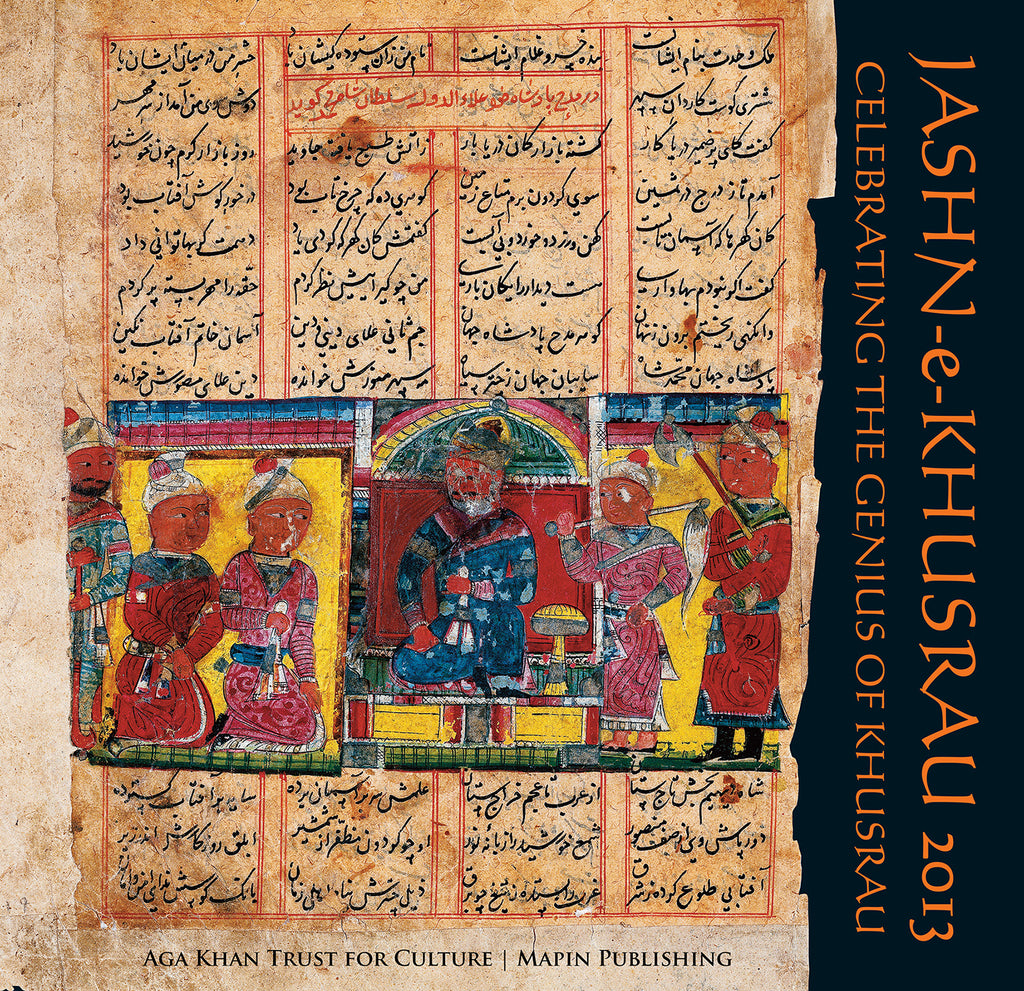Jashn-e-Khusrau 2013
CELEBRATING THE GENIUS OF KHUSRAUAmir Khusrau is one of the greatest poets of the Persianate region comprising of South and Central Asia, Iran, and Asia Minor.
- Category: All Books
Amir Khusrau (1253–1325 AD) served as a court poet to several nobles and sultans of Delhi Sultanates between 13th and 14th centuries: recording their battles and guiding their political campaigns; praising them eloquently in metaphors and analogies of Persian literature adapted within Indian imageries; creating governance norms and ethics; making discourses and innovations in science and music; writing historical and love epic poems and ghazals; and, as a devout of Hazrat Nizamuddin Auliya, the most revered 13/14th century Chistiya Sufi of Delhi, he gave to the world the vibrant artistic traditions of Sufiana music and poetry – which continue till today in many oral traditions ranging from classical to folk.
The book introduces the multi-faceted genius of Khusrau in contemporary settings to generate a body of discourses for popular understanding. It presents his contributions as important cultural heritage of South Asia in the context of the 700 years of accumulative history and cultural developments.
It compiles the proceedings of the Festival of Khusrau (Jashn-e-Khusau), 2013, organized by the Aga Khan Trust for Culture with co-funding from Ford Foundation. The book provides, for the first time, a comprehensive understanding of the era of Amir Khusrau; the beginnings of Indo-Islamic art and culture of the medieval era; and their continuity into presentday India.
The three audio CDs included here contain unique and exclusive qawwali, masnavi, ghazal, and Hindustani classical music. All verses and music compositions (except the contemporary fusion) are attributed to Amir Khusrau, and they remain till today as part of the oral heritage.
SHAKEEL HOSSAIN, presently, a consultant to the Aga Khan Trust for Culture, is involved with the development of Urban Conservation Master Plan for Hazrat Nizamuddin Basti. Trained as an architect and urban designer, his expertise and work – professional and academic – has mainly been in field of Indian city forms, architecture, and art and crafts within the popular religio-cultural context. He has developed and curated several exhibitions and lectured on subjects such as Karbala: Represented; Beliefs, Rituals, Art and Architecture; Muharram in India; The Transient, The Ephemeral, and The Static: Ritual Architecture and Urban Form. He has been Senior Fellow at the Smithsonian Institution, Washington D.C.; American Institute of Indian Studies, New Delhi; Center for World Religions, Harvard University; and Aga Khan Programme for Islamic Architecture, MIT, Cambridge.
• Foreword | Ravindra Singh, IAS, Secretary, Ministry of Culture
• Foreword | Cameron Rashti, Historic Cities Programme, AKTC
• Acknowledgement | Ratish Nanda, Projects Director, AKTC
• PART I Essays
• Amir Khusrau: In Making of India’s Composite Culture
• Masnavis of Amir Khusrau
• Khamsas of Nizami Ganjavi and Amir Khusrau
• Conversations With The Crow: Majnun of Nizami | Layla Of
• Khusrau
• Hasan Sijzi and Amir Khusrau: Friends, Poets, and Devotees
• Mystical Poetry Of Amir Khusrau and Mirza Bedil: Central Characteristics
• Roots Of Persian Parda System in Hindustani Music: A Conclusion From The Works of Amir Khusrau
• Amir Khusrau in the Context of Indo-Persian Synthesis in Medieval North Indian
• Amir Khusrau: Contributions to Hindustani
• Hindavi Poetry of Khusrau: Collective Memory, Cultural Traditions and Sufi Music
• Part II Verses and Music
• Introduction
• Kalāms
• Cd 1 • Qawwālis
• Cd 2 • Ghazals &
• Cd 3 • Classical
• Part III Appendices
• Ruh-E-Dehli: Chishti Sufis of Delhi Sultanate | Introduction to Heritage Walks
• Illustrated Chronology
• Map: Persianate World & Khusrau’s Expeditions
| ISBN | 9788189995874 |
| Pages | 228 |
| Number of photographs | 166 |
| Number of illustrations | 4 |
| Size | 11 x 11" (280 x 280 mm), hc |
| Date of Publishing | 2014 |
| Language(s) | English |
| Co-publisher(s) | Mapin in association with Aga Khan Trust for Culture |
| Rights Available | World rights |






